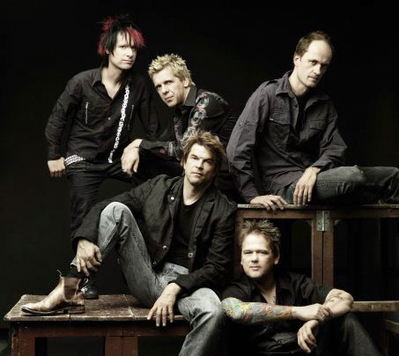Hier kommt Die Toten Hosen

Before the band’s show on 10th of August in Sibiu, guitarist Michael Breitkopf talks about Germany’s influence on Europe, about the new DTH album, about death...
Starting from the well-known statement "Punk's Not Dead", what can you tell us about your music style that changed throughout the years? And how about punk? It isn't as strong as it was in the 80s, at least this is how we feel it, but considering today's political and economical changes, this movement could grow a lot nowadays too.
We were part of the punk rock movement in the late 70´s and early 80´s. Dusseldorf was one of the three most important cities for that movement in Germany, among Berlin and Hamburg. It had a lively scene, a lot of bands were formed there and many punk bands from England came to play there very early. Our idols were bands like 999, The UK Subs, The Vibrators, The Damned, The Clash, The Ramones, Johnny Thunders etc. We also liked bands like AC/DC and Motorhead. When we found Die Toten Hosen in 1982 we tried to play this style of music as well. The punk rock movement in those days split itself up more and more in different scenes and lost it´s power and significance. Over the years there happened a lot in music and we got more open to other styles as well. Bands like Faith No More or Rage Against The Machine developed something new and left their traces in our music as well. I would say that we still use the same ingredients, but nowadays we know how to use our instruments much better than 30 years ago. Punk rock as a real movement stopped to exist long ago, but I think there will always be people calling themselves punks, who have the same musical roots like us and who share the same ideas, like anti-racism. In that respect punk rock will always be important to certain people.
How do you see these changes? Especially that Germany has a strong influence in Europe's evolution.
Germany might be economically and politically powerful, but I think it doesn´t have any cultural influence in other countries. Everywhere in Europe people still look to England and America what happens there in music and film. Apart from that there are many scenes existing along each other in every country, like hip hop, punk rock, electronic music, dub, ska etc. I think in every scene there is an exchange between certain scenes in different countries.
You are a German band that succeeded abroad without singing mainly in English. So, you've proved this is not a must. What was and what is your receipe of success?
When we played in Scandinavia, for example, we sung a lot in English, but in Latin America many people don´t speak English too well and they are used to the sound of the songs in German, so people there prefer to hear the songs in German, so that they can sing along to what they know from record. It´s always astonishing that people even in places like Russia or Uzbekistan know quite well what we are singing about, despite the language barrier.
Tell us about your 15th studio album, Ballast Der Republik and what we'll see in Sibiu next month.
With this album we tried to get out of some old habits and patterns that you are stuck in when you are in a band with the same people for 30 years. We tried hard to find new ways of expressing ourselves, so in the end we used the same ingredients for the new songs like before, but somehow it feels more fresh and vital than on the last two albums. In Sibiu we will combine old and new songs, after thirty years we have a lot of songs to choose from and it´s fun to exchange songs in the set every night.
What do you expect on visiting Romania?
We always take every chance to go to places and play there where we have never been before, so when we got the invitation to Sibiu it took us one second to decide to do it. We have never been to Romania before, so we are really looking forward to it. When we go somewhere with the band we have a much stronger impression of a country than as if you go there as a tourist. There are immediately people you can talk to, who take you to bars or clubs you wouldn´t find as a tourist, you see the audience, you see the other bands at the festival, so it´s always exciting to explore something new, even it´s only for a short time.
In your 30 years career you've seen and experienced a lot of things. How would you your public?
When we started we played maybe to 50 to 500 people every night, who were mainly punks. When we got more popular the audience became more mixed, punks, alternatives, rastas as well as football fans turned up. Nowadays the audiences are very mixed in age and style and it´s great when a concert turns into a big party with all these people.
And a personal curiosity: it is said you've reserved space for 17 persons at Düsseldorf's Südfriedhof cemetery... you sing "Viva la Muerte" - what's death in your opinion?
Yes, we have bought our grave on a cemetery in our hometown Düsseldorf – we do everything in life together, so we thought we could take the last step together as well. For me death is the change into another dimension. I have the feeling that death is not the end of it all, that the soul will live on in whatever way.


 Patricia Marinescu
Patricia Marinescu
















